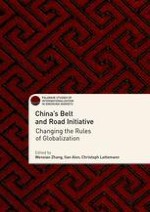2018 | OriginalPaper | Buchkapitel
2. China and the Twenty-First-Century Silk Roads: A New Era of Global Economic Leadership?
verfasst von : Francis Schortgen
Erschienen in: China's Belt and Road Initiative
Aktivieren Sie unsere intelligente Suche, um passende Fachinhalte oder Patente zu finden.
Wählen Sie Textabschnitte aus um mit Künstlicher Intelligenz passenden Patente zu finden. powered by
Markieren Sie Textabschnitte, um KI-gestützt weitere passende Inhalte zu finden. powered by
